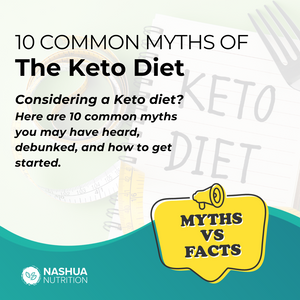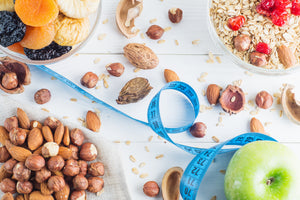Eight Ways to Improve Your Heart Health

It’s National Nutrition Month! As part of National Nutrition month, we thought it would be great time to share some tips on heart health. We thought these great tips would help make food choices that may improve your cardiovascular health.
- Consider the Quantity and Quality of your Fats. You’ve undoubtedly heard the terms “healthy fat” and “unhealthy fat”. While some fats are certainly better than others, you should always take care to limit fat consumption to 25-35% of your daily caloric intake, or about 55 grams on a 2000 calorie diet.
- Limit Saturated Fat. Foods high in saturated fat are particularly prone to increase blood cholesterol. As per the American Heart Association, you should consume no more than 5% of your daily calories from saturated fat, or about 120 calories /13 grams saturated fat. Foods high in saturated fat include poultry skin, dark meat poultry, beef, lamb, certain pork products, butter, cheese, lard, shortening, cream and other whole and 2% dairy products.
- Eliminate trans fats. Be sure to avoid trans fats, which are often listed as “hydrogenated” or “partially hydrogenated” oils on ingredient lists. Trans fats increase “bad” LDL cholesterol and reduce “good” HDL cholesterol, markedly increasing your likelihood of Type II diabetes, heart disease, and/or stroke.
- Choose lean proteins. Although we typically think of fish and seafood as the leanest sources of protein, there are lean cuts of most types of meat. While fish, seafood, and poultry are your best bets, be sure to use healthy preparation.
- Skip the breading! Breading can add hundreds of extra, unnecessary calories to a dish, even if you choose to bake, rather than fry. Remember to always remove the skin from poultry, as poultry skin contains high amounts of saturated fat.
- Rethink snacks. The average American eats about 500 calories a day from food between meals alone. These extra calories are fueling the obesity epidemic, and a lot of those calories aren’t from healthy sources of food.
- Increase vegetable consumption; reduce caloric consumption. To reduce calories and increase nutrient consumption, try reducing the volume of your “main” dishes by 25%, and replace that volume with vegetables.
- Be salt savvy. Commit to reading labels! Most of us consume too much sodium, fueling high blood pressure, especially for those who are already overweight or obese.
- Nashua Nutrition Admin









